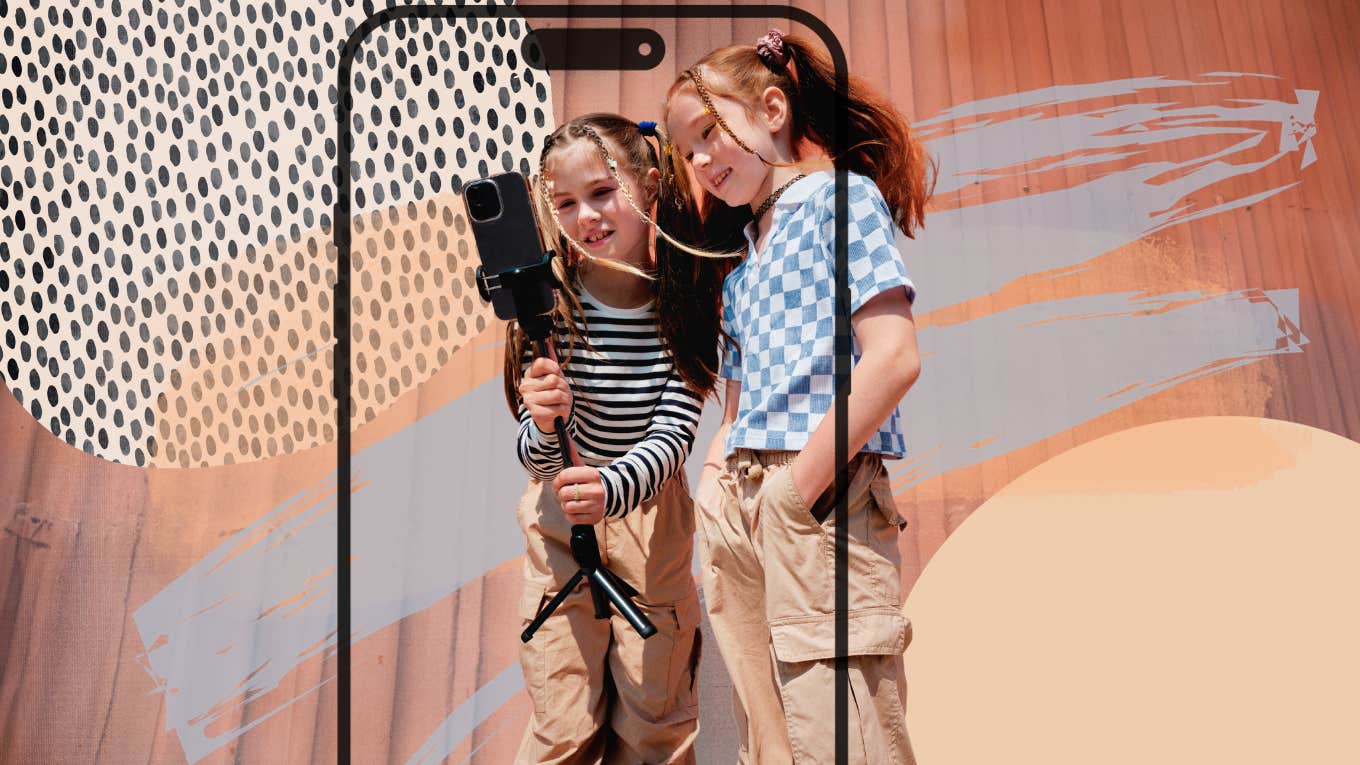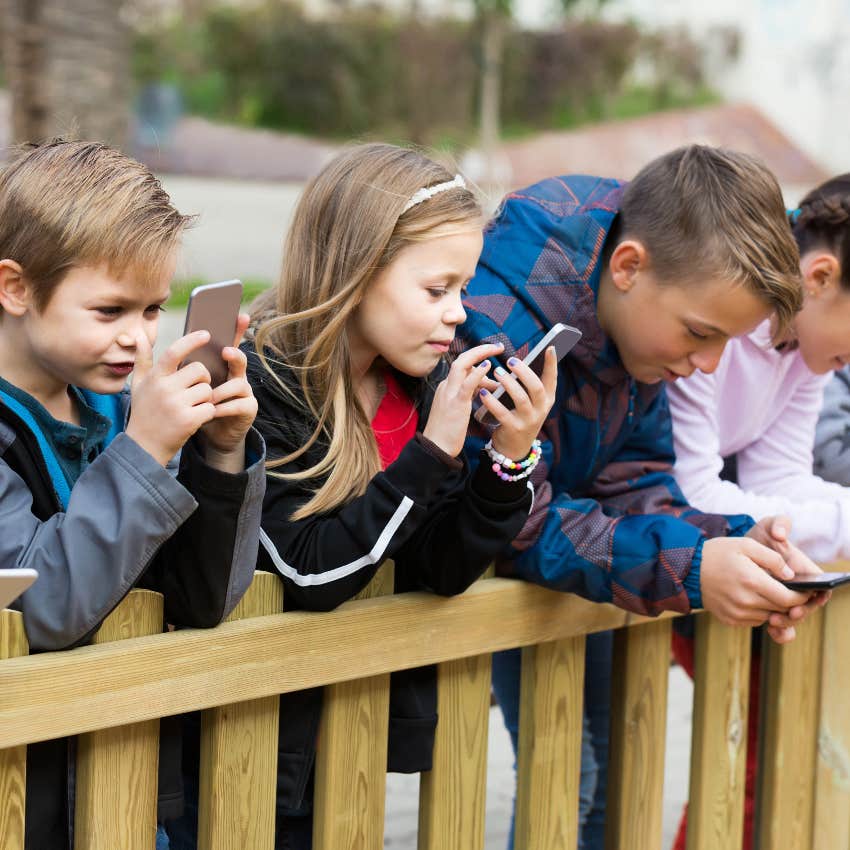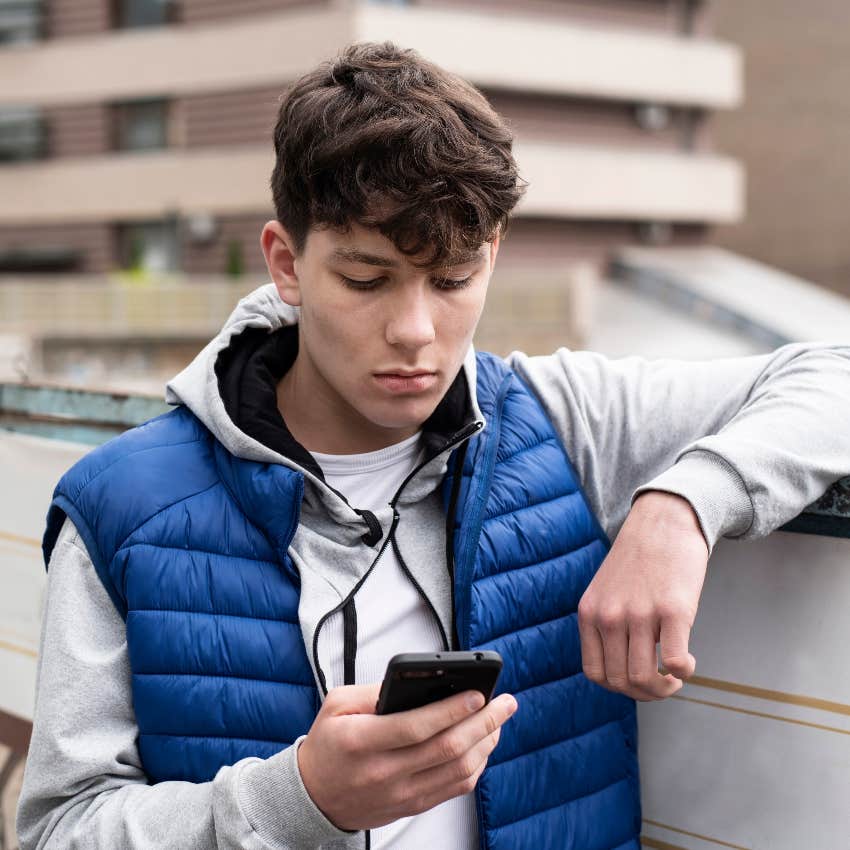If My Kids Shouldn’t Be On Fentanyl, Why Should They Be On TikTok?
Smartphones were supposed to make things easier. But they have made parenting — and life — far more difficult, instead.
 Andrej Lišakov | Unsplash
Andrej Lišakov | Unsplash Remember the old days?
Back in the 1900s and early aughts, when we sometimes met up with friends out in the world, and if they didn’t show up at the appointed hour, we had no idea what was going on? We didn’t know if they were just RINGL8 and OMW, or if they’d been hit by a bus, or if they’d forgotten about us entirely.
We just had to stand there. And wonder. And wait.
Man, I miss those days. When we waited for things. When we weren’t constantly flooded with minute-by-minute updates of basically everything. When we didn’t always know what was going on, and that was okay because nobody else did, either.
We still don’t know what’s going on most of the time, but we think we do. We think we’re benefiting from the waves of random information that assault us daily. We think we’re communicating more. We think our apps are improving the user experience of our lives, making everything more seamless, more streamlined, more efficient.
We think we’re saving time, saving energy, saving money.
But when you stop to think about it — which, let’s face it, we don’t do all that much anymore — smartphones have made our lives only somewhat easier and vastly more difficult.
Many of us, particularly us “old folks” (i.e. over 35) who survived adolescence and early adulthood without a smartphone, are just beginning to come to terms with the enormous trade-offs that come with carrying the so-called “world” in our pocket.
And particularly those of us “old folks” who have kids.
I know I’m not the only parent trapped in a perpetual gridlock with my pre-teen over the age at which she will be allowed a phone and the age at which she will be allowed to access social media. As a child who is part of the “native generation,” who grew up swiping and Googling and taking selfies, denying her a phone of her own is, by her logic, kind of like denying her a limb.
 Photo: BearFotos / Shutterstock
Photo: BearFotos / Shutterstock
Honestly, it all makes me want to flee with my family to an off-grid community with a herd of slightly feral kids who entertain themselves with rocks and sticks.
My daughter sees all the shiny promises that so many of us did when iPhones first hit the market. In full disclosure, I was not in the “shiny promise” camp. I was gifted my first iPhone by my job, and I was not at all excited to receive it. “Wait, now I can check my work email anywhere?” I asked with a sigh.
Call me a Luddite, or just a skeptic, but I was doing fine with my flip phone. For years, I continued to use my iPhone as mostly… well, a phone. I gradually started to text more, but I didn’t like it. I was working as an editor at the time, and texting offended my grammatical sensibilities.
But as the world became hooked, I found myself reaching for my phone to fulfill a growing body of needs — to look up directions, find a recipe, deposit a check, listen to music, take a photo, and assess the likelihood of rain.
It’s true, my phone was making some things in life terribly convenient. I found it increasingly hard to imagine that once upon a time, we had to consult a paper map before driving to an unknown destination, or even more recently, print out directions from MapQuest. Not all that long ago, we had to walk or drive to an ATM to deposit a check, consult a recipe book that made us do math if we needed to adjust the proportions or remember to bring a camera or walkman when we ventured out into the world.
And yet… I also find myself yearning for the simplicity of those minutes we all spent, in our former lives, waiting on street corners, watching the world, blissfully unaware of what casual acquaintances across the country were eating for lunch, and not quite sure where our friends were or what was going to happen next.
I also find myself wondering, with increasing frequency, what has happened to all the time and energy our smartphones were supposed to gift us. Maybe we can effortlessly take pictures or deposit checks, but now we also find ourselves with 36 million photos to sort through and 89 subscriptions to manage, most of which we swear we’ve already canceled. We can not only check with the weather, but get updates in 15-minute increments, not only find a recipe, but find 27 comparable recipes, each one requiring us to scroll for approximately 11 minutes to find the ingredient list, while closing out at least a dozen pop-up ads in the process.
We spend hours creating passwords, logging in with passwords, retrieving passwords, changing passwords, screaming at apps that don’t recognize our passwords, and dealing with the fallout when our passwords get hacked.
These headaches primarily relate to the tools, the utilitarian functions of a smartphone or app that aim to be at least marginally helpful.
But many apps weren’t designed to save us time at all. They were designed to take our time away.
Enter social media. It started innocently enough (oh, the carefree days of MySpace), but over time, these platforms have become explicitly engineered to monopolize our eyeballs and entrap us in vicious cycles of addiction.
As a parent, it’s the social media platforms that terrify me the most. I already watched my stepson, now 23, fall down a YouTube rabbit hole and, with some nudges from his mother’s Trump-supporting family, emerge on the alt-right side of things — with a fully realized depressive disorder, to boot. My partner and I didn’t have much of a say as to when he got a phone, or how much time he spent on it, but we also weren’t quite yet aware of how evil — because, there’s no other word — social media had become.
 Photo: Marian Fil / Shutterstock
Photo: Marian Fil / Shutterstock
My stepson and his peers were the user testers, the generation of children who proved how easily young minds could get hooked on this stuff — and how much money there was to be made.
Now, most parents know better, but we still let our kids have smartphones. Why?
Well, there was Covid. But even before Covid, smartphones and tablets offered busy, stressed out, unsupported parents moments of relief when, God forbid, they had to pay attention to something else, like preparing food or fighting with a customer service agent.
My own kids never had tablets, and I have so far largely resisted the urge to distract them with screens, but they have still become fluent in smartphones. Whether they want to listen to music, peruse family photos, FaceTime with their grandparents, or learn how to bake a chocolate cake, it’s all on my device. Their little fingers yearn to tap and swipe.
As they get older, I find myself getting more and more nervous.
My daughter has made repeated claims that she is the only one in her class without a smartphone. Independent research, conducted by me, has found this to be not entirely true, but it’s close. She says everyone spends recess talking about TikTok dances, and she feels left out.
My daughter can already call friends on her smartwatch, but, as she tells me with a deep eye-roll and even deeper sigh, “Mo-om, no one talks anymore.” (Don’t I know anything?) She is not just desperate for a phone but desperate for access to TikTok.
She is 11 years old.
GOP Rep. Mike Gallagher and I probably don’t see eye to eye on much of anything, but when he recently called TikTok “digital fentanyl,” I had to agree.
Like nearly all other social media platforms, TikTok is designed to leave the user continuously craving more; it bombards users with short, disparate pieces of information that destroy our ability to focus; and it serves up content based on what an algorithm has decided you’re most likely to respond to, regardless of whether or not that content may cause you harm or has any relationship to truth.
Also, unlike some other social media behemoths, it aggressively caters to kids. It’s estimated that a third of TikTok users may be under the age of 14.
I don’t know any other parents who are wrapping up boxes of fentanyl for their kids’ 11th, 12th, or 13th birthdays. Just be careful and don’t take too much, okay? Yet we willingly purchase smartphones for our kids, then wring our hands when they get hooked.
Lest you think I’m exaggerating here, take it from Stanford psychiatrist Anna Lembke:
Social connection has become druggified by social-media apps, making us vulnerable to compulsive overconsumption. These apps can cause the release of large amounts of dopamine into our brains’ reward pathway all at once, just like heroin, or meth, or alcohol.
To be clear, I’m not blaming parents here. My daughter has worn me down so much that I have, on occasion, actually considered buying her a phone just to shut her up. And I do have empathy for her feelings of social exclusion. But do I have to buy her a smartphone just because all the cool parents are doing it?
I’m already anticipating the readers who will jump in to point out all the parental controls we have at our disposal, all the rules and boundaries we can set around screen time, all the various ways we can monitor what our children are up to in their virtual lives.
To which I would respond: BUT I DON’T WANNA!
I don’t wanna give my child access to something I already know is addictive and then be saddled with the extra responsibility of making sure she doesn’t get hooked. And remember, I’m already busy over here with my 36 million photos, 89 subscriptions, 48 daily weather updates, 27 recipes for roasted chicken thighs, and at least a dozen forgotten passwords.
That doesn’t even include the three-week-running group text thread about a Saturday playdate that may or may not happen, or the dozens of other text reminders about practices, appointments, and extracurriculars. Or the many responsibilities that come with running a household and ensuring that no one goes hungry. Or talking to my partner, whom I’ve been told, appreciates getting some attention from time to time. Or, you know, the full-time job I work to help pay our bills.
Why in the world would I willingly add more apps to my list of “s*** to figure out,” more boundaries for a child who has been pushing boundaries since before pushing boundaries was cool, and more daily chores to a list of daily chores that exceeds the number of available hours in a day? Should I add “spy on my child online” before or after “pull my child’s hair out of the drain” or “nag my child to clean up after his nightly toothpaste war?”
Many of us point to COVID-19 as the root of our younger generations’ mental and behavioral health crises, but Covid was an amplifier, not a cause.
The primary root cause can be found in that magical handheld device that promised to change the world — and, unfortunately, did.
Many parents now share my anxiety, but we don’t know how to deny our kids smartphones in a social context that threatens to exclude them, and in a broader culture that depends on them for pretty much everything.
There is likely an app-less, semi-smart phone in my daughter’s future. But the battle will rage on. And unfortunately, as of now, I’m pretty sure that I’m not on the winning side.
Kerala Taylor is an award-winning writer and co-owner of a worker-owned marketing agency. Her weekly stories are dedicated to interrupting notions of what it means to be a mother, woman, worker, and wife. She writes on Medium and has recently launched a Substack publication Mom, Interrupted.

